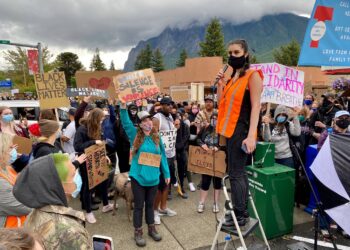Bottom Line Up Front (BLUF): As the 2024 election looms, polling data may be misleading due to response bias and changing voter dynamics. Richard Baris, the People’s Pundit, reveals insights on why current polls might not accurately reflect the electorate. Steve Bannon, host of the WarRoom program, adds context to these findings, emphasizing the need for a deeper understanding of the shifts in voter sentiment.
Response Bias: The Polling Dilemma
Richard Baris dives into the critical issue of response bias in polling. He explains, "There are several different kinds of response biases, but in layman’s terms, it means someone’s not answering the phone.” This bias may stem from various factors, including voter reluctance to engage with pollsters, particularly among Republican voters. Baris notes that many white Republicans may have voted early and are now hesitant to discuss their choices over the phone.
This phenomenon isn’t new. Baris references the challenges faced during the 2020 election, stating, "We had a very difficult time getting Republicans on the phone, especially white Republicans.” He believes this reluctance could lead to an underrepresentation of Trump’s support in the polls, skewing the data. "Polling is just a data point,” Baris insists, highlighting that other factors, such as early voting trends, should be considered for a clearer picture.
Shifts in Voter Dynamics
Barris also emphasizes a noticeable shift in voter sentiment, particularly among Black voters. He argues that some of these voters are disenchanted with Kamala Harris and may consider voting for Trump instead. "We are seeing this at the micro level,” he explains, pointing out that early voting data from urban areas shows signs of this dissatisfaction.
The early voting numbers are crucial. Baris reveals that turnout is significantly higher in Trump-supporting counties compared to Democratic strongholds. "Trump counties are way up over 100% of the vote, while Democratic counties are way below,” he notes. This trend could indicate that Trump’s base is mobilizing effectively while Democrats struggle to inspire their core voters.
Bannon’s Perspective on Polling and Realignment
Steve Bannon adds a strategic layer to the discussion. He suggests that we are witnessing a "realignment” in the electorate. Past elections show that polling can often misrepresent the true dynamics. "Polls missed in 2016, and they missed even worse in 2020,” he warns.
Bannon believes that understanding the underlying currents of voter sentiment is vital. "When you look at these counties, it’s clear: there are voters who aren’t sold on the Democratic Party or Kamala Harris,” he asserts. This perspective reinforces Baris’s point about changing loyalties among voters traditionally aligned with Democrats.
Caution Against Misinformation
Barris urges caution when interpreting polling data, especially in light of the misinformation that often circulates. "People cherry-pick data,” he cautions, emphasizing the importance of context. Voters must understand that not all data reflects reality, and narratives can quickly become distorted.
Bannon echoes this sentiment, highlighting the impact of media narratives on voter psychology. "They shame people,” he says, referencing the broader cultural climate that may deter honest responses from voters. The fear of backlash or judgment could lead many to avoid engaging with pollsters altogether.
Final Thoughts: Mobilizing for 2024
As the election approaches, both Baris and Bannon emphasize the need for proactive voter engagement. Baris encourages listeners to participate in grassroots efforts, stating, "You need to get your friends to vote.” This call to action is essential in ensuring voter turnout aligns with the potential shifts observed in polling data.
As polling unfolds, it’s crucial to remain skeptical of numbers without context. Understanding response biases and voter sentiment’s evolving landscape will be key to navigating the complex political terrain of 2024.
For more of our coverage of the Media gaslighting on polls:
For more context watch Sunday’s segment on the Mobilization Special featuring Richard Baris:





![Bannon’s WarRoom, Show Clip Roundup 11/3/2024 [ELECTION SPECIAL]](https://warroom.org/wp-content/uploads/2024/11/5b22cedd1ae6624e008b4d0c-75x75.webp)